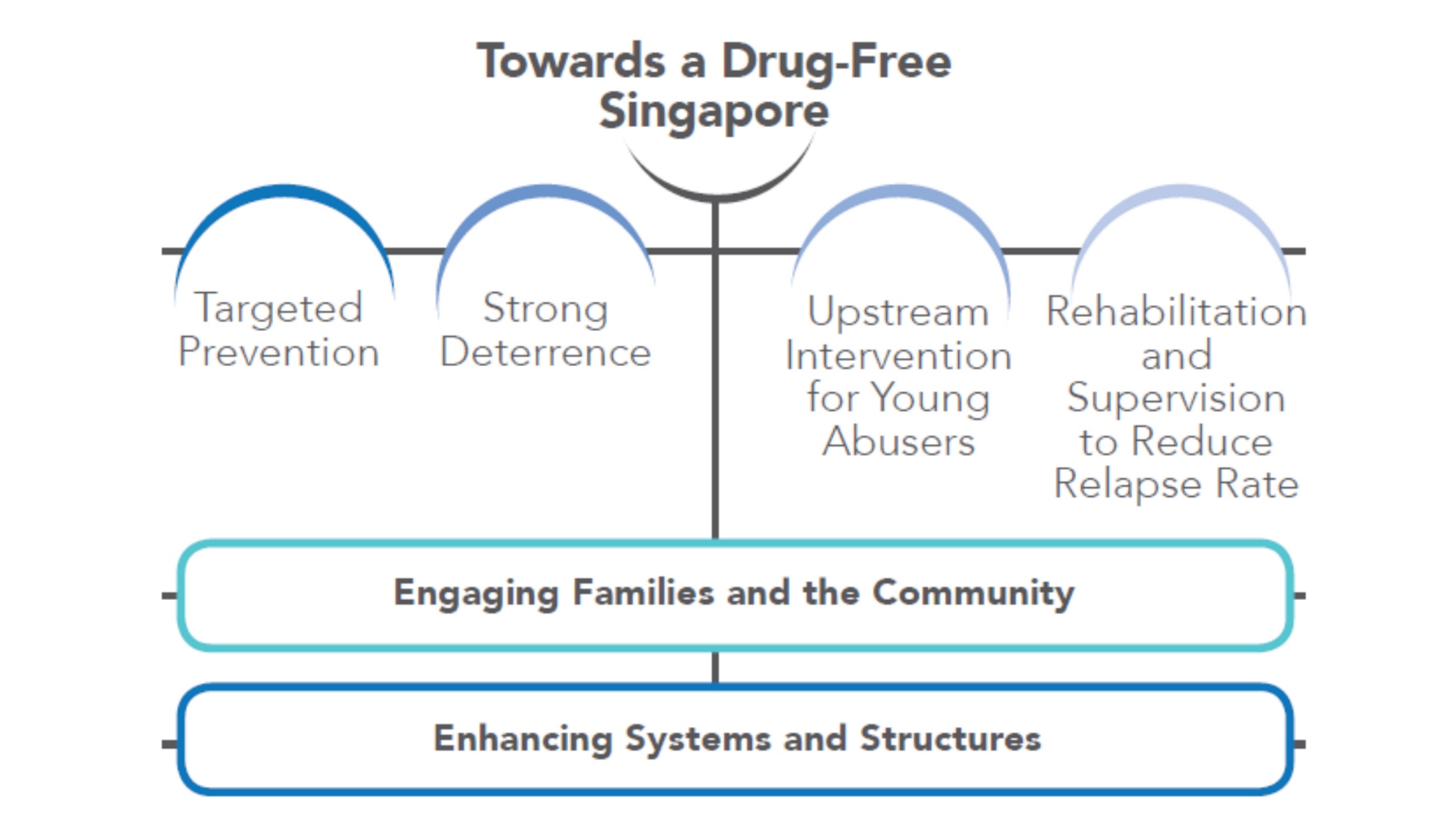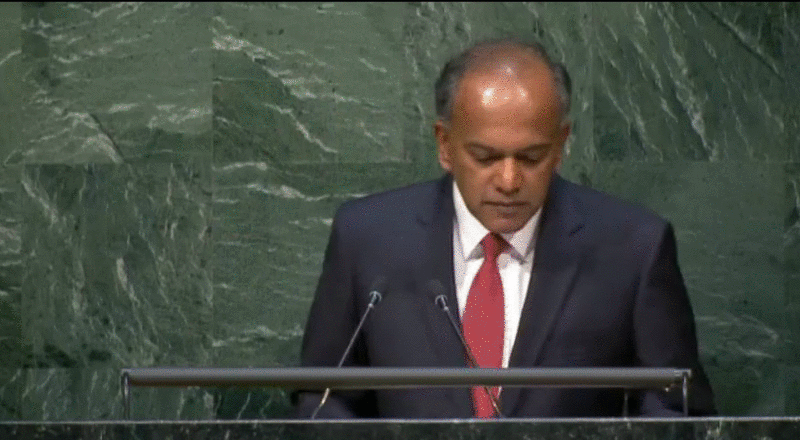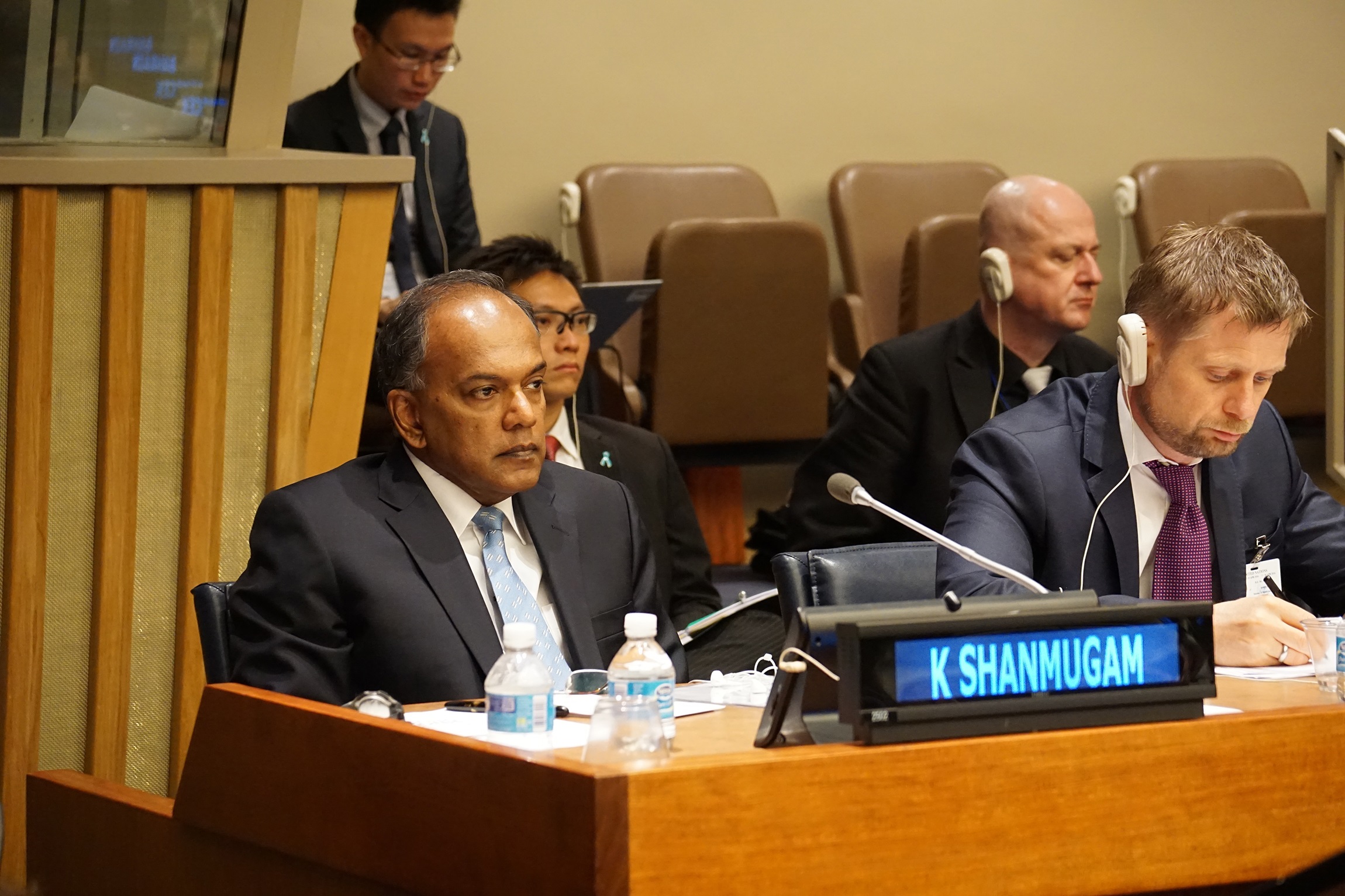April 20 was the moment when the international community received the Shan treatment.
K Shanmugam, Minister for Home Affairs and Law, told the participants at the Plenary Session at the United Nations General Assembly Special Session on the World Drug Problem (UNgass) 2016,
"For us, the choice is clear. We want a drug-free Singapore, not a drug-tolerant Singapore... If you want us to change, show us a better way."
Basically, Minister Shanmugam offered a firm "no" to a different approach to tackling the world drug problem suggested by other countries, especially since to the government's mind, there is a lack of evidence of success.
What is the issue?
The three-day general assembly special session (UNgass) to focus on the drug issue — the first since 1988 — was scheduled after lobbying by Mexico, Guatemala and Colombia.
The leaders of the three countries called for a “humane solution” to the drugs problem that goes beyond a focus on enforcement and criminalisation.
There is a real divide between countries on the issue
There are deep divisions between the United Nations member states over how to solve the drugs problem.
Some countries — the three named above, as well as Portugal and Norway, for instance — have moved towards decriminalising or legalising drugs, while others — like us, Indonesia and Egypt, to name a couple others — continue to execute people convicted of drug crimes.
Advocates for the decriminalising or legalising of drugs want to move beyond prohibition to effective prevention.
Things got tense when a delegate for Indonesia was booed on April 19 as he defended his country’s use of the death penalty as “an important component” to deter drug offences.
The divide can also be observed by how The Straits Times and Reuters covered the UN delegates' applause after the speeches:
ST: "His (Shanmugam) speech received applause from the delegates in the hall but it is clear that there is little agreement on the best way to address the issue".
Reuters: "Lohde's (Danish Health Minister) attack on capital punishment (that immediately followed Shanmugam's speech — a veiled dig in his direction) received a burst of applause and was echoed by other European delegates."
Anyway, this is Singapore's stand on the matter:
Its current methods — reducing the demand of drugs — are effective.
The number of drug abusers arrested has decreased from more than 6,000 in the 1990s to about 3,000 now.
Singapore does not see the need to adopt the differing route of harm reduction that the countries on the other side are advocating.
The four facets of Singapore's approach are as below:
 Source: Ministry of Home Affairs
Source: Ministry of Home Affairs
And here are eight key points that Minister Shanmugam used in his speech to make Singapore's stand clear:
1. Telling it like it is: drugs are harmful
"I heard a lot yesterday about a science-based approach to drugs. What I have said is science-based. Drugs harm you! You wouldn’t knowingly and happily give drugs to your teenage children, would you?"
2. Adopting a hardline approach to drugs
"We believe that drugs will destroy our society. With 200 million people travelling through our borders every year, and given Singaporeans’ purchasing power, a soft approach will mean our country will be washed over with drugs. This is why we have adopted a comprehensive, balanced, sustained and tough approach to tackling both drug supply and demand."
3. Scepticism of the harm reduction (or legislation) approach
"For countries in these situations, an acceptance of drugs in their societies seems attractive. Hence, harm reduction, or legalisation. Others, like Singapore, focus on tackling drug trafficking, through supply reduction, and tackling drug abuse, through demand reduction. When you go down the route of harm reduction, I don’t think we should be under any illusion – Drugs harm the abuser, his family, and the community. Period."
4. Results matter.
"The results speak for themselves. We are relatively drug-free, and the drug situation is under control. There are no drug havens, no nogo zones, no drug production centres, no needle exchange programmes. Our stance on drugs has allowed us to build a safe and secure Singapore for our people."
5. Soaring rhetoric by some UN participants, in his view, are not based on facts.
"Yesterday, I heard many speeches, both here and in the roundtables, soaring rhetoric on the rights of people to access narcotics... To us, it sounds like a lot of straw man arguments. Because it is not based on facts."
6. Demand reduction is not inhumane towards the drug abuser.
"Demand reduction doesn’t have to mean no compassion or consideration for the drug abuser. It doesn’t have to mean that we lock up the abuser, throw away the keys, and condemn him to a life of criminality."
7. Singapore is open to changing its position if there is evidence that supports the other approach.
"We will change our position if people can show us, based on evidence, that drugs are good for the person taking it, or at least neutral, that the crime situation will not get worse, and that the rest of society will not pay a price for it."
8. Singapore is prepared to compare its experiences on tackling the drug issue with any city in the world.
"I say to anyone with a different view – come forward. I am prepared to compare our experiences with any city that you choose. Show us a model that works better, that delivers a better outcome for citizens, and we will consider changing. If that cannot be done, then don’t ask us to change."
You can watch Minister Shanmugam's full speech here.
Top photo from UNWebTV.
If you like what you read, follow us on Facebook and Twitter to get the latest updates.
If you like what you read, follow us on Facebook, Instagram, Twitter and Telegram to get the latest updates.

